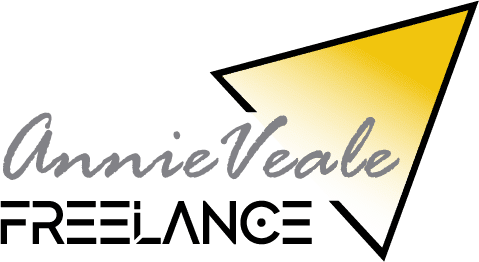Defining your Digital business Goals
The past few years have seen some rapid technological advancements and evolving consumer behaviours, as such, businesses are increasingly recognising the importance of digitisation and digital transformation to remain competitive, resilient, and relevant in the marketplace.
Whether you’re a seasoned enterprise or a budding startup, embarking on a journey of business digitisation presents unparalleled opportunities for innovation, growth, and enhanced customer experiences.
Ideally, you will want to plan a roadmap for initiating and navigating the intricacies of a digitisation push in 2024. From setting strategic objectives to implementing e-commerce websites and digital marketing tools, we’ll explore the essential steps and best practices to ensure a successful transition into digital success.

Defining Your Digital Vision and Objectives
The importance of articulating a clear and compelling vision for your digital future, and aligning it with your business goals and customer-centric values is the essential first step.
Define measurable objectives and key performance indicators (KPIs) to track progress and evaluate the impact of your digitisation efforts. In terms of your digital marketing toolbox, you will need to identify the key tasks required from your digital marketing team and implementation and, I would suggest, look at creating a team consisting of:
The omnichannel marketer plays a central role in crafting a cohesive and immersive digital experience for the audience that extends to traditional media, events or in-store interactions.
This involves developing a comprehensive strategy that spans multiple online channels such as social media, email, website, and beyond to real-life brand or product touch-points. Their responsibilities extend to creating targeted marketing campaigns tailored to different platforms, ensuring a consistent brand message across channels. They leverage data analytics to understand user behaviour, optimise campaigns for maximum impact, and contribute to the overall user engagement strategy. By integrating various touchpoints, the omnichannel marketer enhances brand visibility, fosters customer loyalty, and drives conversions. Hiring a freelance digital marketing consultant may well provide affordable access to specialist skills to allow you to fast-track your strategy and create more efficient workflows for your existing in-house or agency teams.
Business Development Specialist:
The business development specialist focuses on identifying growth opportunities and forging strategic partnerships to propel the business forward in the digital landscape. They play a key role in product development, researching market trends, and identifying areas for innovation. Collaborating with cross-functional teams, the business development specialist ensures that products align with market demands. In terms of digitisation, they may explore new digital products or services, assess market fit, and establish partnerships that enhance the business’s digital capabilities. Their role extends to fostering relationships with key stakeholders, clients, and partners, contributing to the overall success of the digital transformation.
The project manager serves as the orchestrator of the entire digitisation process, ensuring that all components align with the overarching business goals. They are responsible for defining project scopes, creating timelines, allocating resources, and overseeing the implementation of digital initiatives. In product development, the project manager collaborates with various teams to define requirements, set milestones, and monitor progress. In marketing campaigns, they ensure that strategies are executed efficiently, deadlines are met, and campaigns are optimised based on performance metrics. The project manager is also instrumental in establishing reporting mechanisms, tracking key performance indicators (KPIs), and providing insights to drive continuous improvement in the digitisation efforts. It is important for the Project Manager to be native in your tech stack to be able to coordinate the inevitable in-house, remote and often off-shore teams involved in the processes of developing the right tools, content and owned media for example the PM may decide to opt for a WordPress SEO freelancer based in the UK to support your in-house content team but also have the technical knowledge to keep an off-shore dev team on the right track. /WP/freelance-marketing/
Building the Right Team for Successful Digitisation
Collectively, these roles form a symbiotic relationship in the digitisation process. The omnichannel marketer enhances the brand’s presence and engagement, the business development specialist drives strategic growth and innovation, and the project manager ensures the seamless execution and optimisation of digital initiatives. Their collaboration contributes to the overall success of the business by leveraging digital technologies to enhance products, elevate marketing strategies, and drive meaningful user interactions. The trio’s efforts are integral in navigating the complexities of the digital landscape and positioning the business for sustained success in the ever-evolving online environment. As a freelancer I can perform any one of these three roles, however, I would suggest to any prospective client, that it would be worthwhile to consider your existing in-house resources and personnel and to encourage a collaborative approach to any major digitisation, allowing a senior team member to head Business Development, Marketing and Project management.
The initial explorative phase should include the opportunity to discuss and present the business, brand and product in context of:
Assessing Your Current Digital Landscape
Benefits of a Digitisation Strategy and the formula for your business
Embracing Emerging Technologies and Trends
Fostering a Culture of Innovation and Collaboration
Ensuring Security, Compliance, and Ethical Practices
Additional resources in the form of web development freelancers or agency teams are integral to the success of such projects.
Your Digital Marketing Toolbox
Optimise for Search Engines (SEO):
Conduct keyword research to identify terms relevant to your business.
Optimise your website content, meta tags, and images with these keywords.
Create high-quality, relevant content that provides value to your audience.
Implement the technical expertise to ensure speed and performance criteria.
Online Reviews and Testimonials:
Encourage satisfied customers to leave positive reviews on platforms like Google My Business, Yelp, or industry-specific review sites.
Address negative reviews professionally and seek solutions to resolve issues.
Define answers and replies, especially to those who indicate they are dissatisfied – suggest they provide an order reference for you to look into and be prepared to offer vouchers when mistakes are made.
It is also worth making a record of those that seem false, it is a prevalent competitor tactic to post negative reviews and you can apply to get those removed.
Content Marketing:
Develop a content strategy that aligns with your business goals.
Regularly publish blog posts, articles, videos, or infographics that showcase your expertise and address customer needs.
Align content with all channels and ensure your SEO team are involved in crafting landing pages and providing data on user flow and engagement.
Create a budget for content creation and evaluate the types of content required frequently.
Email Marketing:
Build an email list by offering incentives or discounts.
Send regular newsletters, promotions, and updates to keep your audience engaged.
Ask for feedback and focus on a NPS indicator as one of your KPIs.
Leverage Online Advertising:
Invest in paid advertising on platforms like Google Ads, Facebook Ads, or LinkedIn Ads.
Target specific demographics based on your customer profile.
E-commerce Integration (if applicable):
If your business involves selling products, set up an e-commerce platform.
Ensure a smooth and secure online shopping experience.
Even if your business is not a typical e-commerce model, your owned media may be suitable for monetisation.
Mobile Optimisation:
Ensure your website is mobile-friendly, as a significant portion of internet users access content through mobile devices.
Analytics and Data:
Use tools like Google Analytics to track website traffic, user behaviour, and conversion rates.
Analyse data to make informed decisions and optimise your digital strategy.
Online Booking and Scheduling:
If applicable, implement online booking or scheduling systems to streamline customer interactions.
Customer Engagement:
Use social media to engage with your audience. Respond to comments, messages, and participate in relevant conversations.
Host online events, webinars, or live sessions to connect with your audience.
Collaborate with Influencers:
Identify influencers or thought leaders in your industry and explore collaboration opportunities.
Consistent Branding:
Maintain consistent branding across all online channels to strengthen brand recognition.
Cybersecurity Measures:
Implement security measures to protect customer data and build trust.
Adapt and Evolve:
Stay informed about industry trends and be willing to adapt your digital strategy accordingly
Remember, the key to a successful digital business is to continuously evolve, stay customer-focused, and leverage the flexibility and scalability that online platforms offer. Regularly assess your performance metrics and adjust your strategy as needed.
In the process of digitising a business, some roles are pivotal in orchestrating a seamless and effective transformation. Each role brings unique expertise to various aspects of the digital journey, ensuring holistic integration and success. As a freelancer I can provide support to each of these roles, having gained several years of experience in each role, with the combined expertise in web development allowing me to provide specific advice on the best tech and tools to provide a user-experience aligned to the objectives and digital brand mission.
Freelance Website Design services
If you would like to discuss your website project in more detail, obtain a quote, timeline and sitemap I can help scope and evolve your project, with a significant portfolio and achievement across branding, design, website development and SEO and can provide all of the services you require in the process – for trusted wordpress freelancers uk

